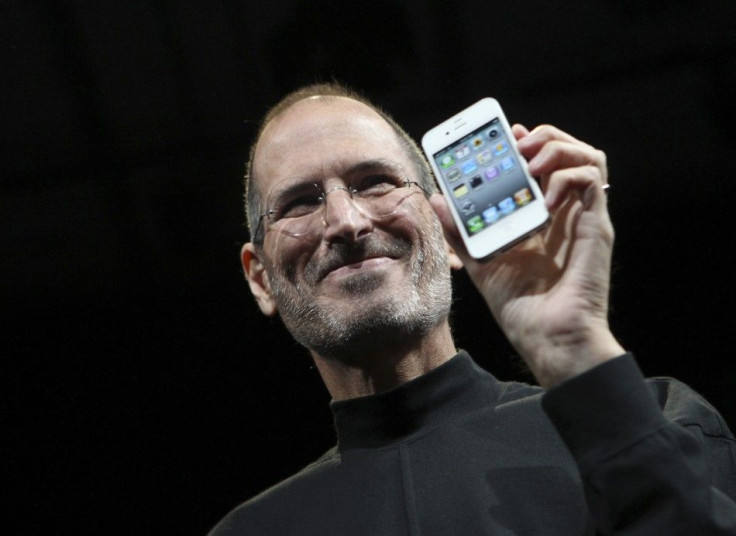Steve Jobs' Health Behind Resignation, Once Said 'Death is Best Invention of Life

Steve Jobs' groundbreaking decision to resign as chief executive of Apple is widely speculated to be due to his health, as Jobs has long suffered from a rare form of pancreatic cancer, and survived longer than many others with the same disease.
Since January, co-founder of Apple had been on a medical leave after battling a rare type of pancreatic cancer and other health issues for over seven years.
While Jobs' health was kept private for the most part, a record of an extraordinary speech remains, of Jobs speaking to audience in Stanford University in 2005, where he admitted that doctors expected Jobs to live no longer than six months.
The doctors told me this was almost certainly a type of cancer that is incurable, and that I should expect to live no longer than three to six months, said Jobs. My doctor advised me to go home and get my affairs in order, which is doctor's code for prepare to die. It means to try to tell your kids everything you thought you'd have the next 10 years to tell them in just a few months. It means to make sure everything is buttoned up so that it will be as easy as possible for your family. It means to say your goodbyes.
No one wants to die, he said. Even people who want to go to heaven don't want to die to get there. And yet death is the destination we all share. No one has ever escaped it.
And that is as it should be, because Death is very likely the single best invention of Life. It is Life's change agent. It clears out the old to make way for the new. Right now the new is you, but someday not too long from now, you will gradually become the old and be cleared away. Sorry to be so dramatic, but it is quite true.
Our time is limited, so don't waste it living someone else's life. Don't be trapped by dogma - which is living with the results of other people's thinking. Don't let the noise of others' opinions drown out your own inner voice.
Jobs was diagnosed in 2003 with cancer in his pancreas, caused by an islet cell neuroendocrine tumor.
Not until August 2004 did Jobs disclose the cancer, announcing the success of surgery to remove the tumor.
His health issues were then kept private, while Jobs appearing at Apple's annual developers' conference was clearly thinning each time.
In January 2009, Jobs entrusted day-to-day operations to Chief Operating Officer Tim, who was newly named as CEO after Jobs' retirement, while Jobs remained involved in major strategic decisions.
In April 2009, Jobs underwent a liver transplant to fight off the spread of the neuroendocrine tumor, while no public statement has been made about the reason for his transplant.
On Jan. 17, 2011, one and a half years after Jobs returned from his liver transplant, Apple announced that he had been granted a medical leave of absence.
As many as 80 percent of patients, who get liver transplants to treat the type of pancreatic cancer Jobs suffered, live for at least five years, according to the University of California San Francisco, said Reuters.
About three-quarters of patients who had a liver transplant because of cancer saw their cancer return within two to five years, said Dr. Simon Lo,
director of pancreatic and biliary diseases at Cedars-Sinai Medical Center in Los Angeles.
While this type of cancer is broadly associated with pancreatic cancer, neuroendocrine tumors have a different nature from most pancreatic tumors, which are highly lethal and which kill 95 percent of patients within five years, reports Reuters. Neuroendocrine tumors are more easily treated and less aggressive.
Jobs may be confronting both the liver transplant related specific problems, as well as the cancer itself, Lo was quoted by Reuters for saying. Whenever you put patients on immunosuppressant medications, there's always a risk that it could take away natural resistance, so the cancer could grow faster.
While Wednesday's announcement of Jobs' resignation, though it was expected to come, still shocked investors and temporarily pushed Apple's stock down, the 55-year-old will take up the role of chairman, and will be able to offer his insights and visions for Apple.
Jobs briefly emerged from his medical leave in March to unveil the iPad 2 tablet computer, and later to attend a dinner hosted by President Barack Obama for technology leaders in Silicon Valley.
He also appeared this summer at Apple's Worldwide Developer Conference in San Francisco to introduce iOS 5, and the forthcoming iCloud service.
Jobs would be leaving his postiion at a time when Apple is worth more than $345 billion, second only to Exxon Mobil and topping than Microsoft, IBM, Google and Intel. Apple's shares closed at $376 Wednesday, from $6.56 in April 2003.
© Copyright IBTimes 2024. All rights reserved.





















